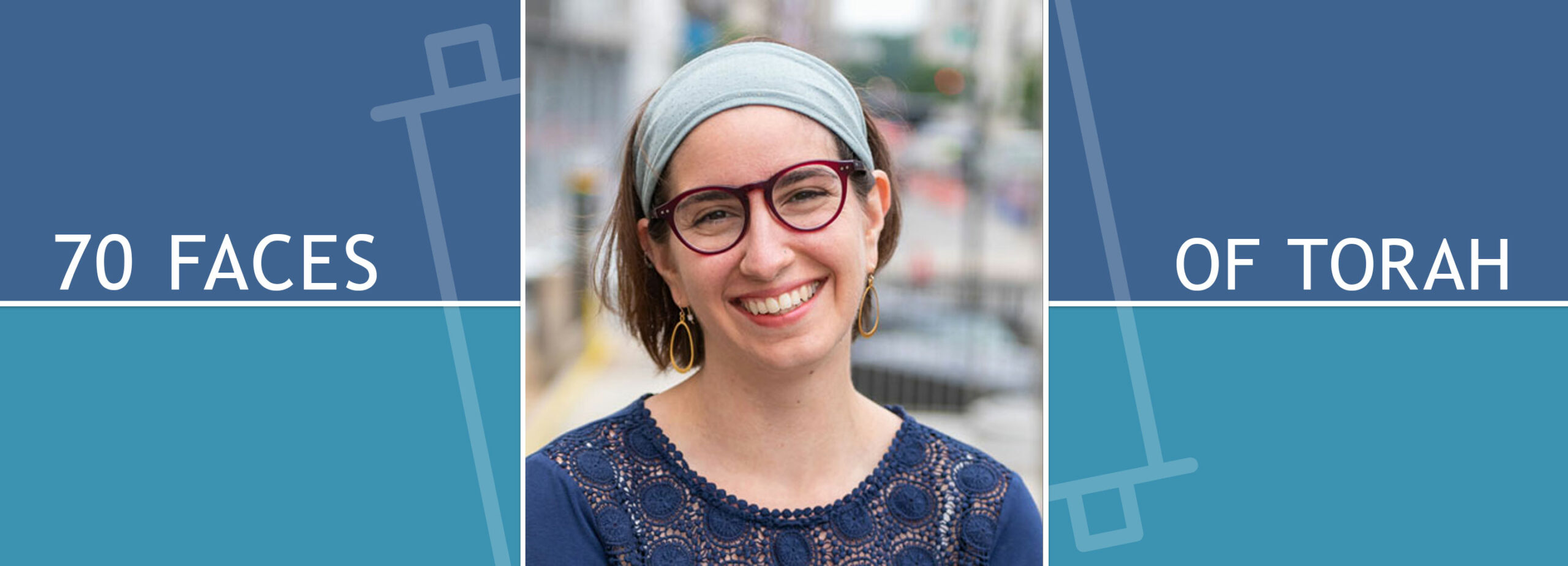Exodus Turn It Over to God

Parashat Terumah (Exodus 25:1-27:19)
A transatlantic flight to Israel. Two adults, two small children, two perfectly packed neatly-organized backpacks. One bag is replete with an assortment of Ziploc bags of all sizes, each sealed with its perfect in-the-air snack: Chex mix with surprises (chocolate chips!), veggie straws, dried cranberries. Another bag chock full of smart travel toys: magnetic puzzle sets, shiny new crayons and coloring pads, stickers galore. There are cell phones, headphones, books with flaps, books without flaps, books that make noise (for the kids), books that don’t make noise (for the sake of the other passengers). We have thought through and prepared for every possible scenario. Except, it turns out, just one. Airsickness. What did we fail to pack? A change of clothes. Hours later we deboard the plane, not as triumphant warriors who conquered the skies, but as exhausted parents with a naked kiddo wrapped in a sweatshirt not of her own.
We plan for everything. We try to anticipate and account for every moment and yet, it is beyond our control. There’s always something beyond our control.
In this week’s parashat Teruma, God instructs Moshe to invite all of the Israelite community to offer up their precious materials to God. We read, “Speak to the children of Israel, and have them take for Me an offering; from every person whose heart inspires him to generosity, you shall take My offering.” This is a verse inviting us to open up our hearts to God, to turn to God with whatever we have, our gold and silver, our oils and spices, in an attempt to show the Holy One our love. Our offering, our terumah, connected to the Hebrew root to raise up, is that which we lift up to God.
Rabbi Mordechai Yosef Leiner, the Izhbitza rebbe, one of the great Hasidic rebbes of the 19th century, offers a different understanding of just what’s being raised up in this verse. He suggests that that which we are raising up is none other than God Godself. In the Mei HaShiluach he writes, “that Israel should take God, the Blessed one, as exalted above all.” God is the terumah, God is that which is raised up, when we recognize that God is the source of all life and all nourishment.
Rabbi Leiner connects this to a sugya from Massechet Sanhedrin in which the rabbis ask a very specific question. When saying the blessing on bread, ha’motzi lehem min ha’aretz, blessed is the one who brings forth bread from the earth, it is customary to cut into the bread at the moment of blessing. But, where exactly on the bread do we make that cut? Manesseh, the King of Judea, answers: we cut into the bread at the place where the bread crusts. But, why? What’s the significance of the crust and why does it connect to this moment of blessing God for God’s role in bringing forth bread from the earth?
Rabbi Leiner explains: a person is required to do all sorts of things in order to produce a loaf of bread. A person must mix the ingredients, knead the dough, light the oven, and place the as-yet unbaked loaf into the oven. And, then a person has to step back and let the bread take shape. Rabbi Leiner writes, “The place from where the bread starts to cook, i.e. the crust, this is out of the control of the person.” And, when a person realizes this, that the exact mysteries of how and why bread bakes is beyond him, a person realizes that the crusting of the bread, the place where it begins to bake first, is determined by none other than the will of God.
For Rabbi Leiner, the crust represents the places in our lives in which we realize that we are not the ones in control. Rather, we turn our hearts to God, we lift God up as teruma, and we realize it is God that is above all, at all times. I am not a baker by any means. But, I’ve been around enough challah being made to have a sense that it’s not a precise science. Rather, try as one might to control the ingredients, the temperature, the timing and the rise, there’s a certain amount of letting go and letting God in when it comes to hoping and praying that all of one’s vigorous kneading yields a loaf delicious to eat. We do not control when the bread crusts.
When we cut the bread at the moment of blessing it, we are asked not only to acknowledge that there are things beyond control, we are asked to bless it. To bless the uncertainty. To bless a certain sense of powerlessness. To bless our own feeling of humility in the face of all that we cannot control.
We can pack our snack bags and backpacks of travel toys. We can pack our fancy screens and shiny crayons, and we can even remember to bring a change of clothes. I mean, we were traveling with a baby after all. (What were we thinking?). But, we cannot control everything. At a certain point, in all of our preparations, we have to accept that there will be things that we did not anticipate. There will be circumstances for which we are not prepared.
Praised are you, Oh Holy One, creator and sustainer of the universe, who brings forth bread from the earth, who determines the precise moment of the crusting of the bread. We acknowledge our powerlessness in the face of all of our planning, and we bless all that is unknown, that which is beyond our control.
Rabbi Avi Strausberg is Director of National Learning Initiatives at Hadar in Washington, D.C. She was ordained in 2015 by Hebrew College.

